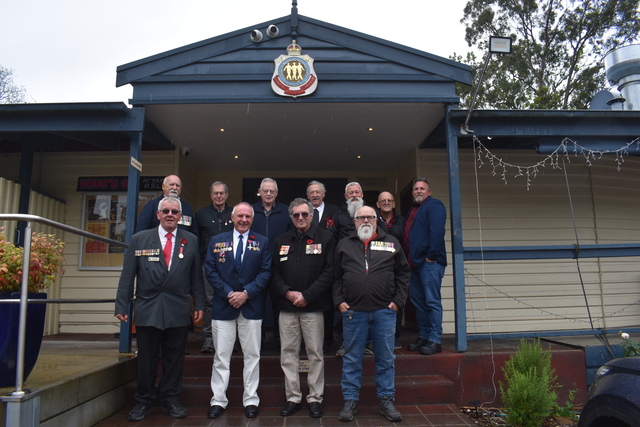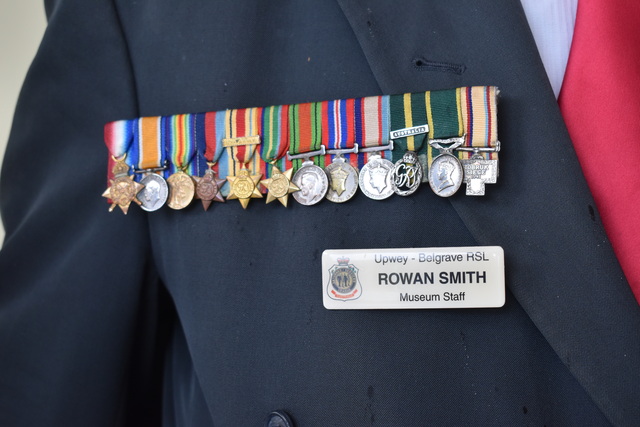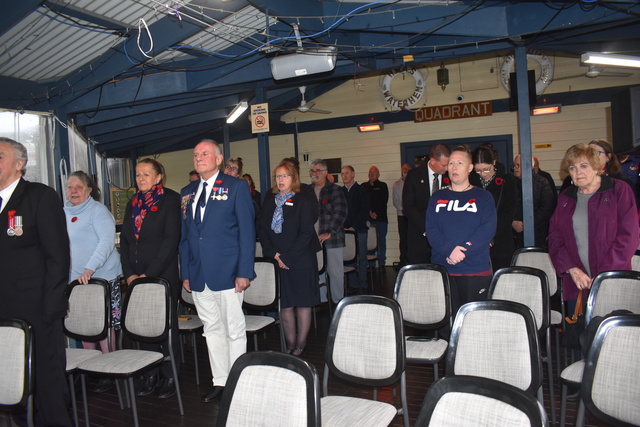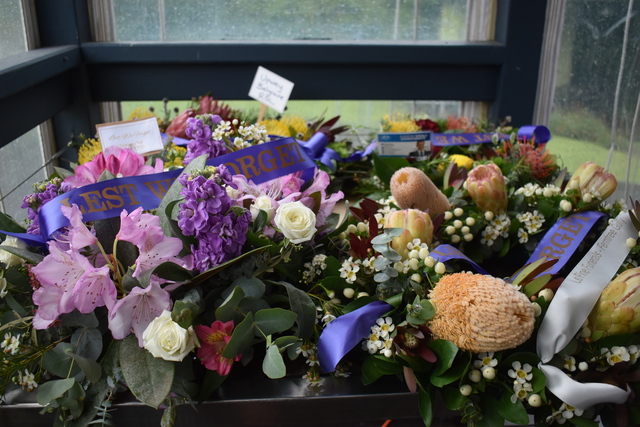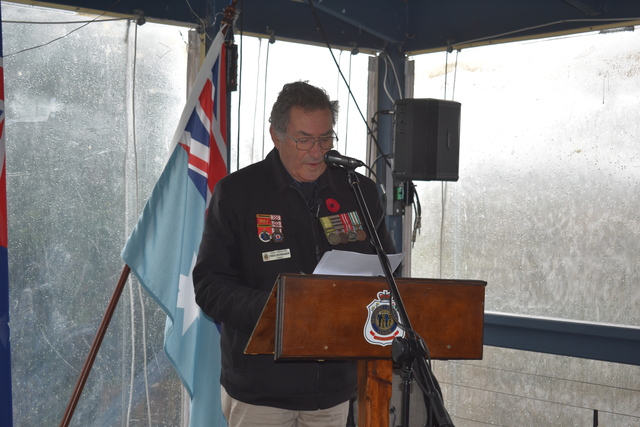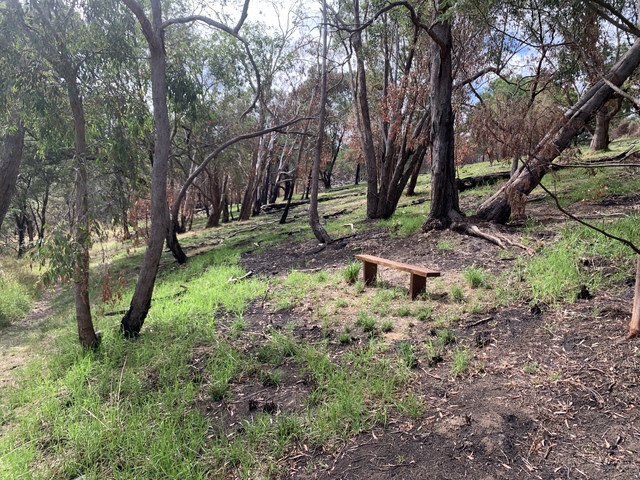Despite Melbourne’s unpredictable spring weather, the Upwey-Belgrave RSL was filled with warmth and reflection on Tuesday 11 November, as locals gathered to honour those who made the ultimate sacrifice to gift the nation we have today.
The Remembrance Day service began at 10.40am, with a minute of silence observed at 11am to mark the moment the guns fell silent on the Western Front in 1918.
Veterans, families and community members filled the RSL’s hall, where red poppies, wreaths and medals set the tone for a solemn but proud occasion.
Upwey-Belgrave RSL president Fred Schmager led the service, he thanked the community for turning out despite the wet weather.
“It’s actually good to see you lovely people here, apart from the hailstones and the rain, we’ve gone to Plan B. It’s all under roof so we don’t get wet,” he said.
After the service, the attendees shared a morning tea together and reflected on the day’s service.
Mr Schmager said the day was about honouring all Australians who served and sacrificed in conflicts across generations.
“Today we’re holding our Remembrance Day service in honour of all our men and women who made the supreme sacrifice in all conflicts,” he said.
“We go back from the Boer War right through to Afghanistan. Something like 103,000 Australians have given their lives for the defence of this wonderful country.”
He said remembrance remains especially important for younger generations.
“It’s very important, because I think a lot of the young generations don’t really know,” he said.
“We’ve got to remind them that while they’re walking around free, people have paid the supreme price for that privilege.”
A national serviceman himself, Mr Schmager said the day holds deep personal meaning.
“For me, personally, I have a military history. We defended this country so people can actually walk free and express their point of view without fear,” he said.
“I always say to young people, travel the world, have a look at some of these so-called democratic Western countries, then come back to Australia and appreciate what we have here, because we are a very free country.”
Alongside the service, the RSL’s Running Rabbits Military Museum, maintained by volunteers remained open to visitors, which displays uniforms, medals and memorabilia contributed by local veterans.
Museum volunteer and long-time RSL member Rowan Smith said Remembrance Day is vital for keeping the memory of service alive.
“It’s extremely important that we keep the memory alive,” he said.
“We do a lot of education, we go out to remembrance ceremonies at aged-care homes and take school groups through.”
For Mr Smith, remembrance is personal and deeply tied to family history.
“My father was in the Ninth Division in North Africa as a 19-year-old gun sergeant at Tobruk and El Alamein. Both grandfathers fought in the First World War, and one in the Second. I lost an uncle flying Liberators in Italy in 1943, and a great-great aunt who was 22 on the hospital ship Centaur when it was torpedoed by the Japanese that same year,” he said.
“I also lost a great-uncle on the Hindenburg Line in 1918. They were all very young. It’s just a reminder to current Australians how lucky they are, and the sacrifices that have gone before to make sure we are.”
Reflecting on Australia’s freedoms, Mr Smith agreed with Mr Schmager’s view that the country’s peace and prosperity are built on the service of those who came before.
“We’re a wonderful country, luckier than most,” he said.
“One of the ways we are better than most is in our value for our own citizens, and a government that actually is supposed to care for them. It’s so important that everybody has that feeling of belonging and this freedom that we take for granted.”

